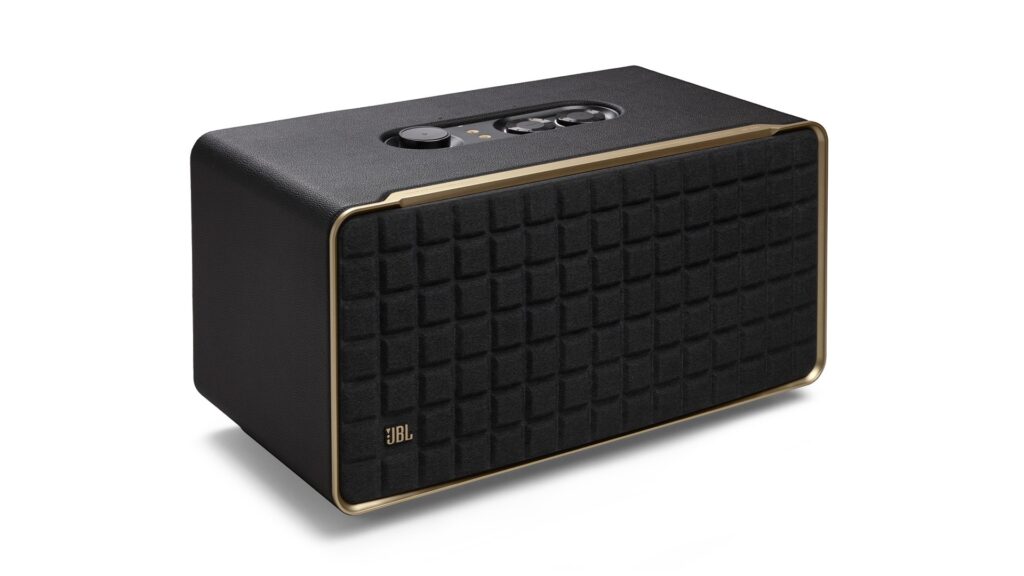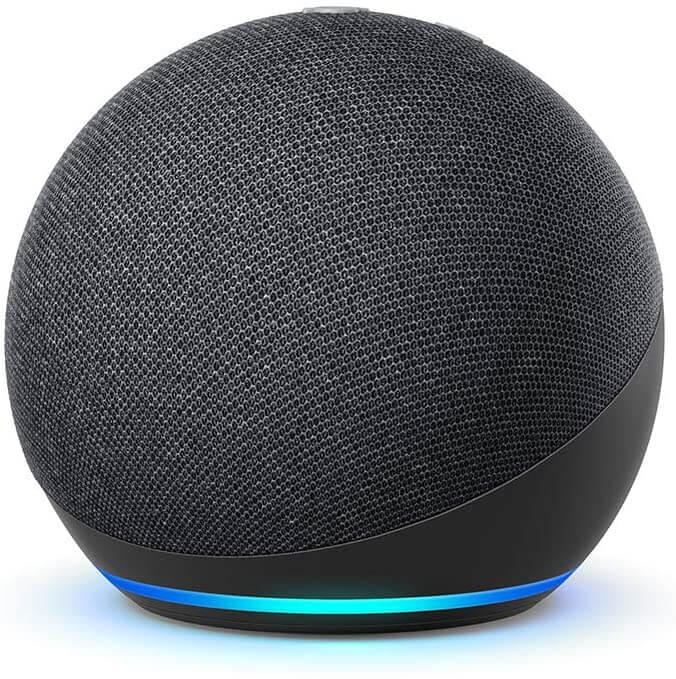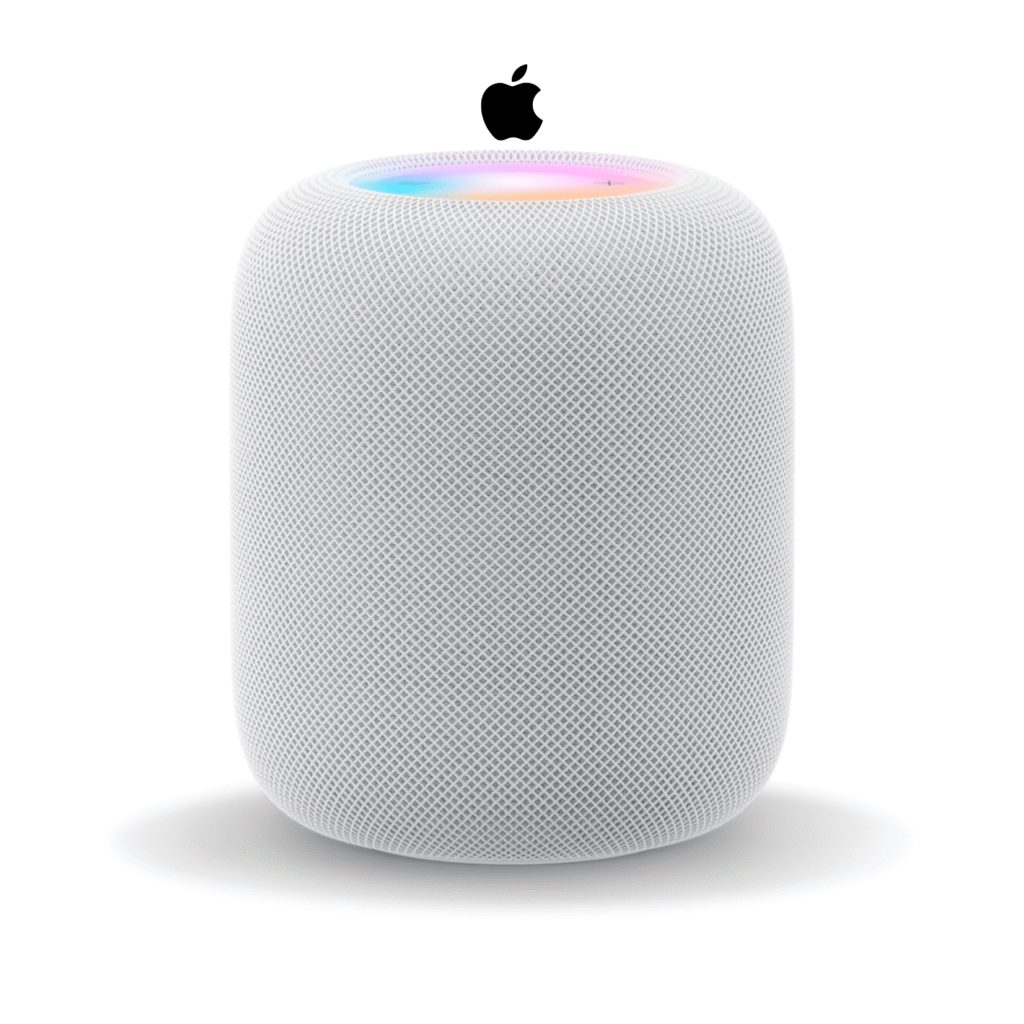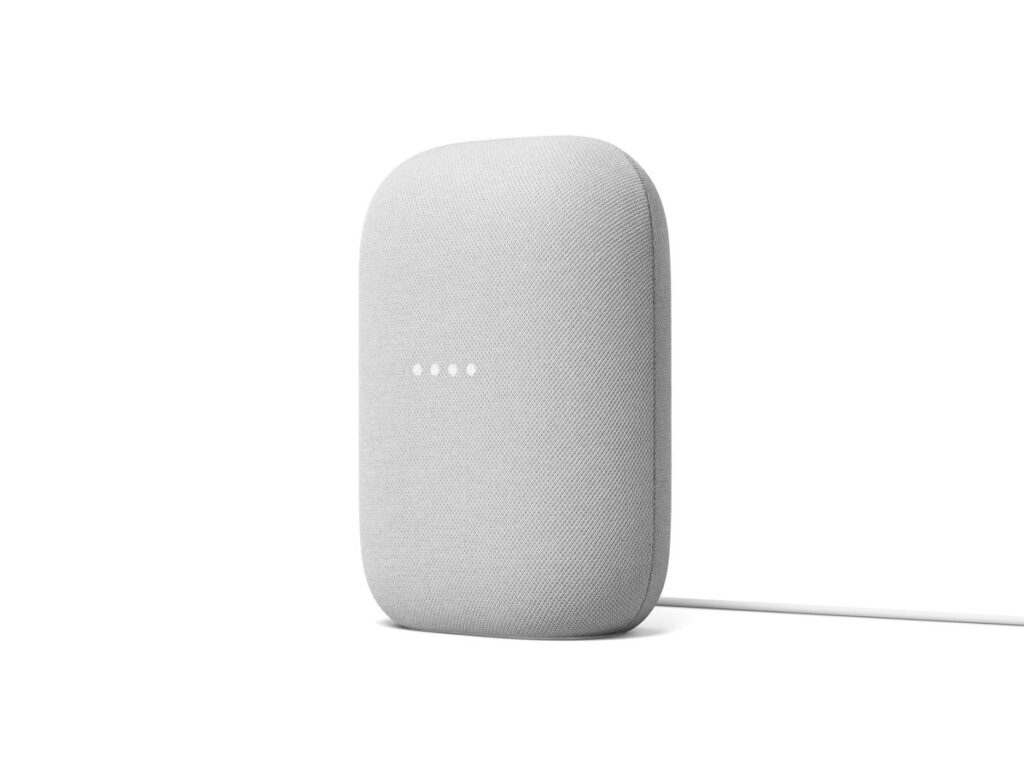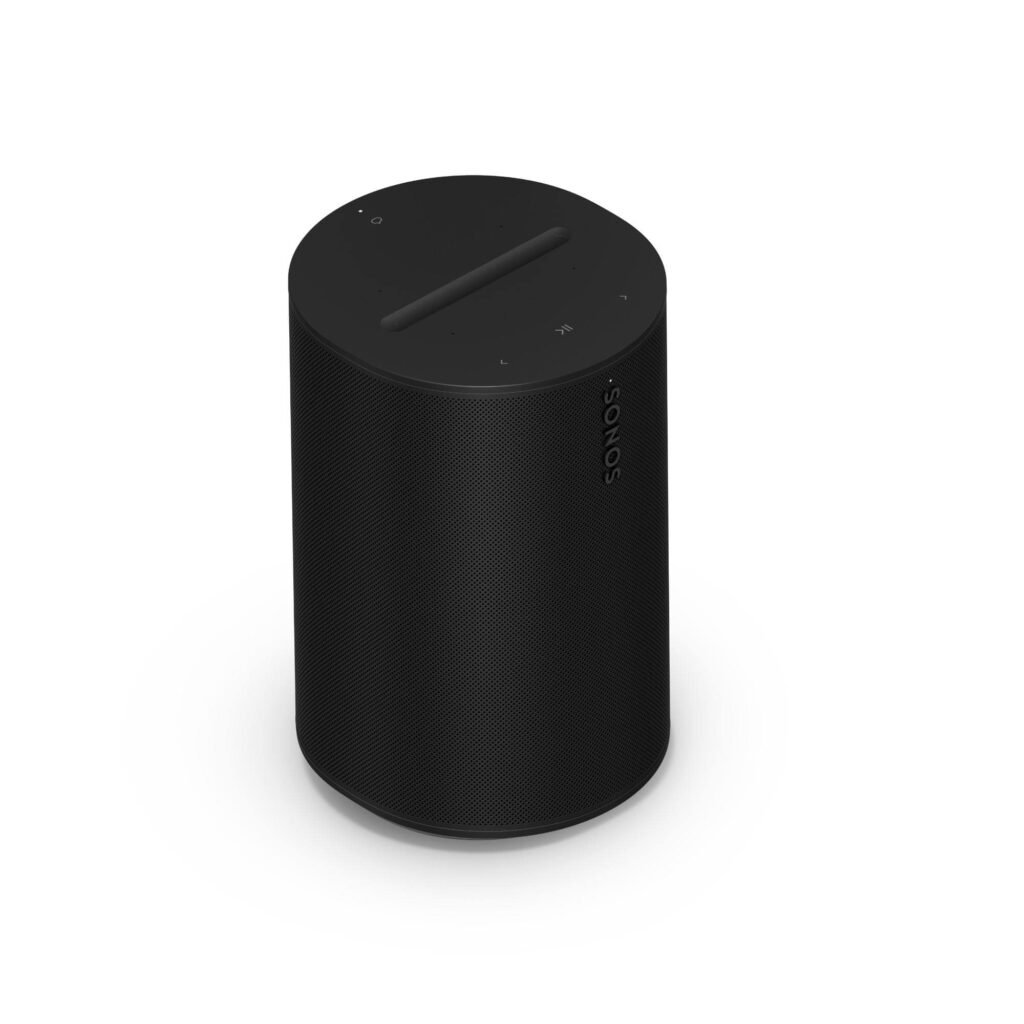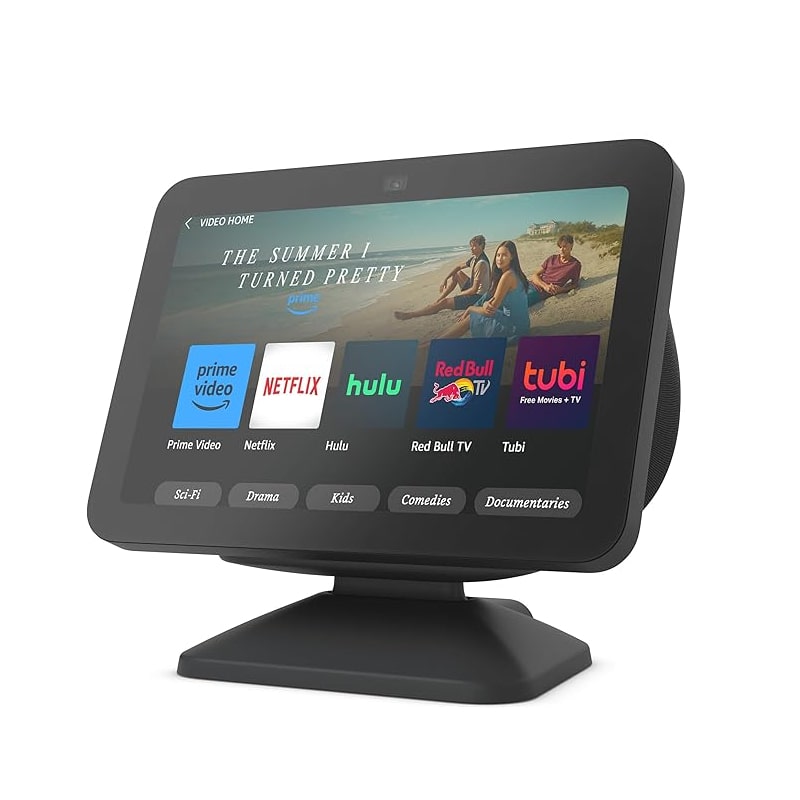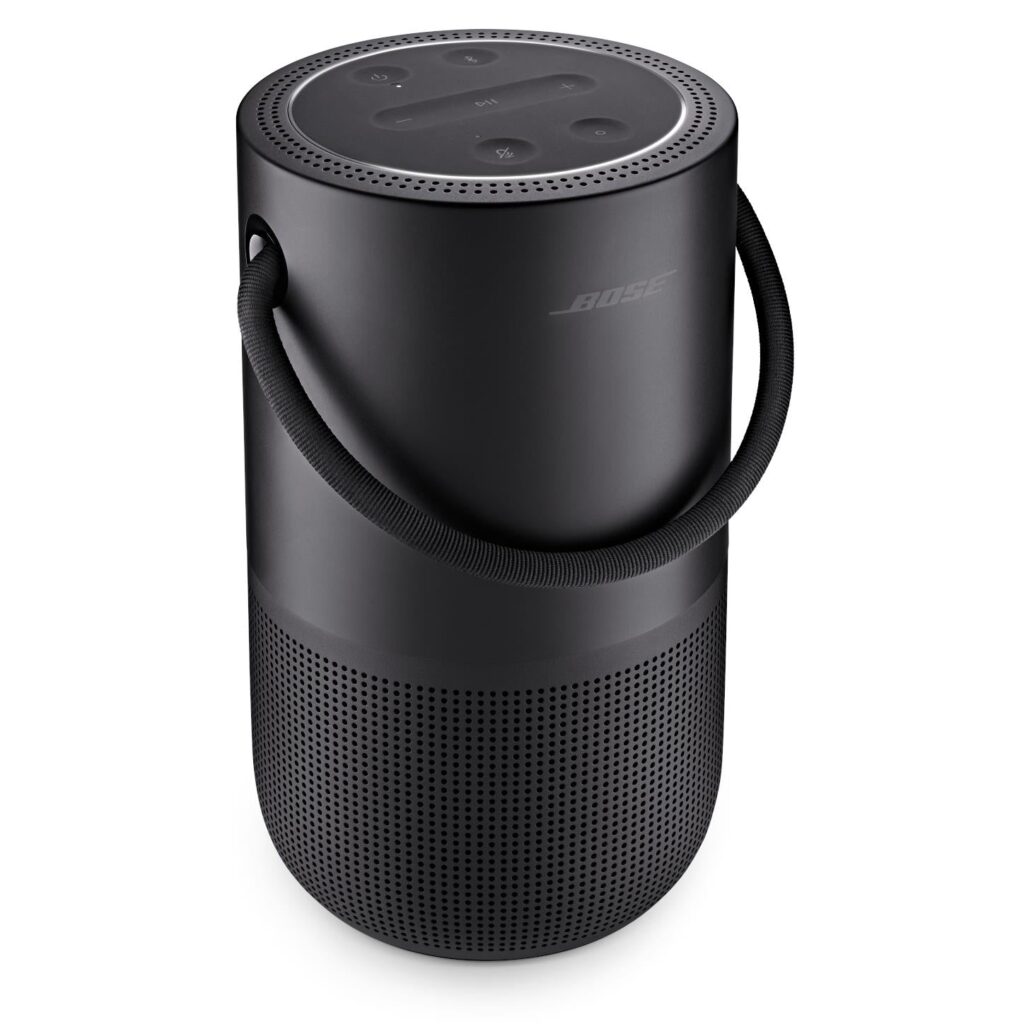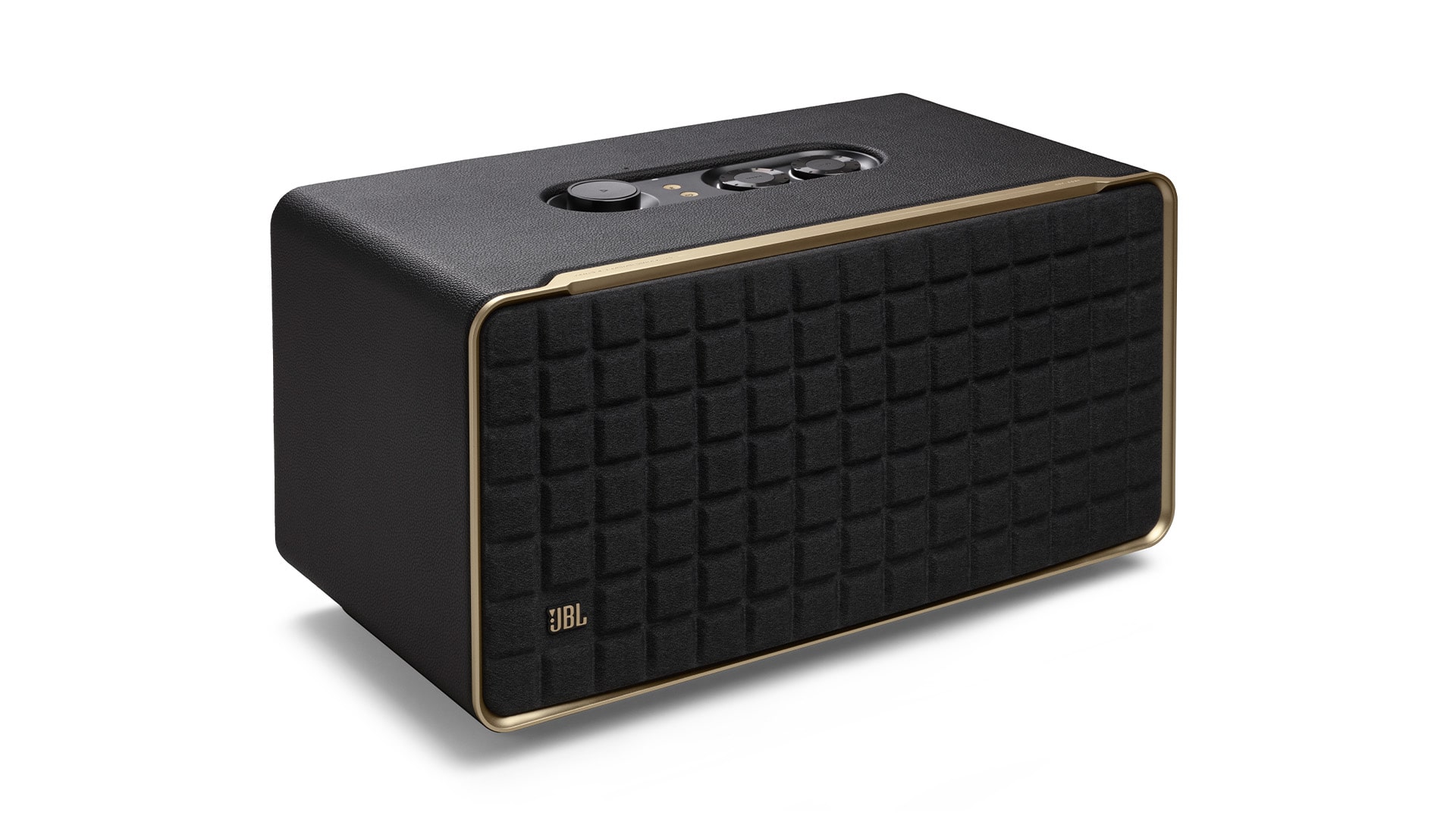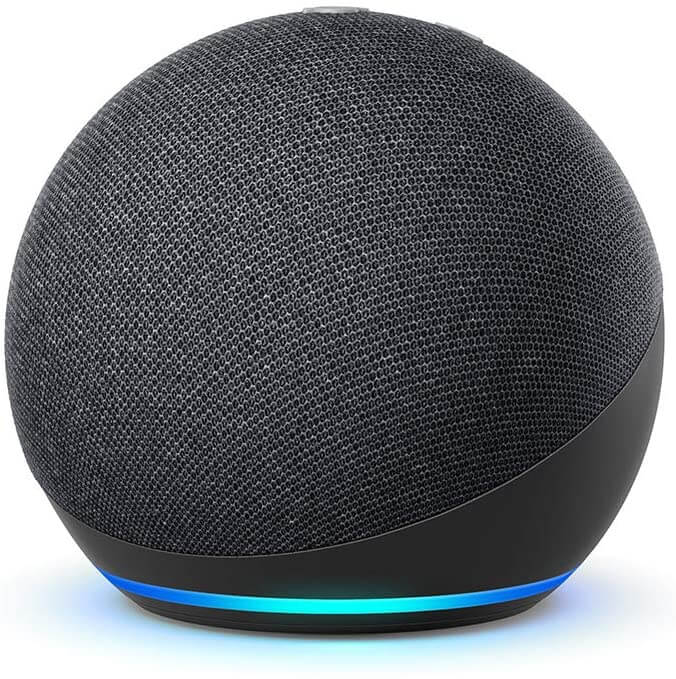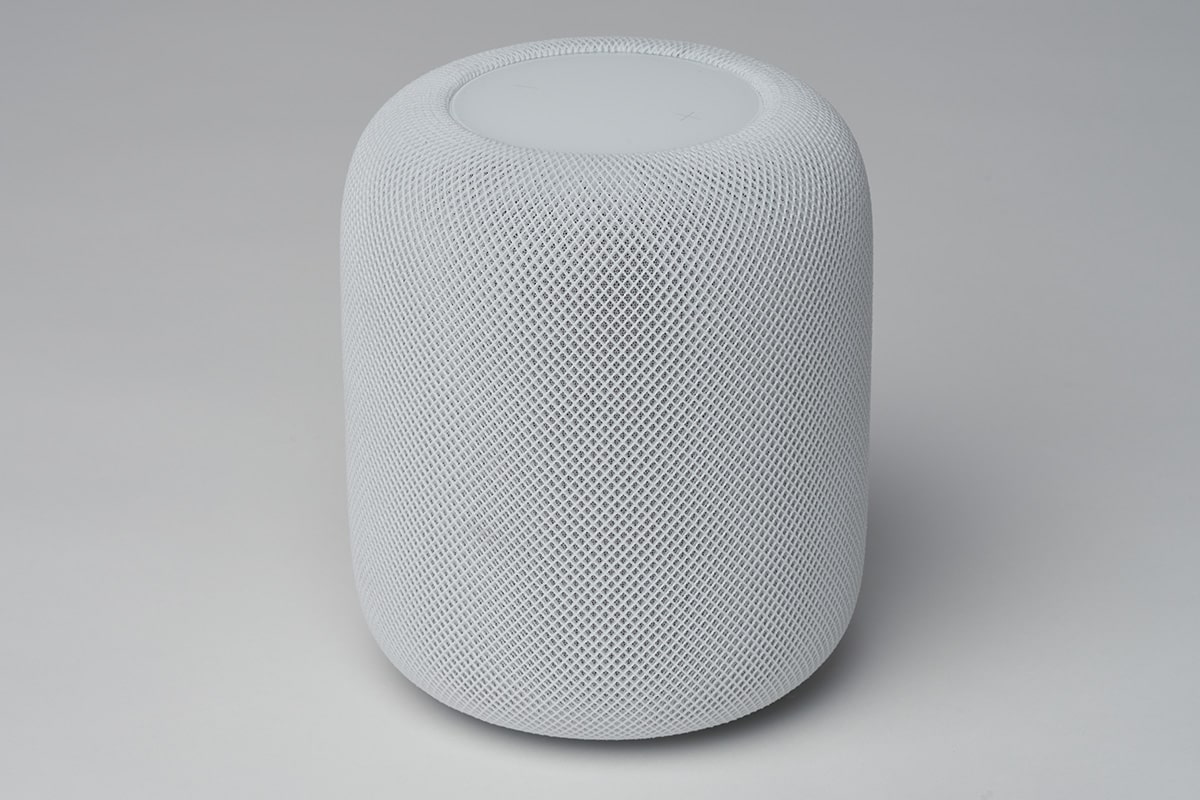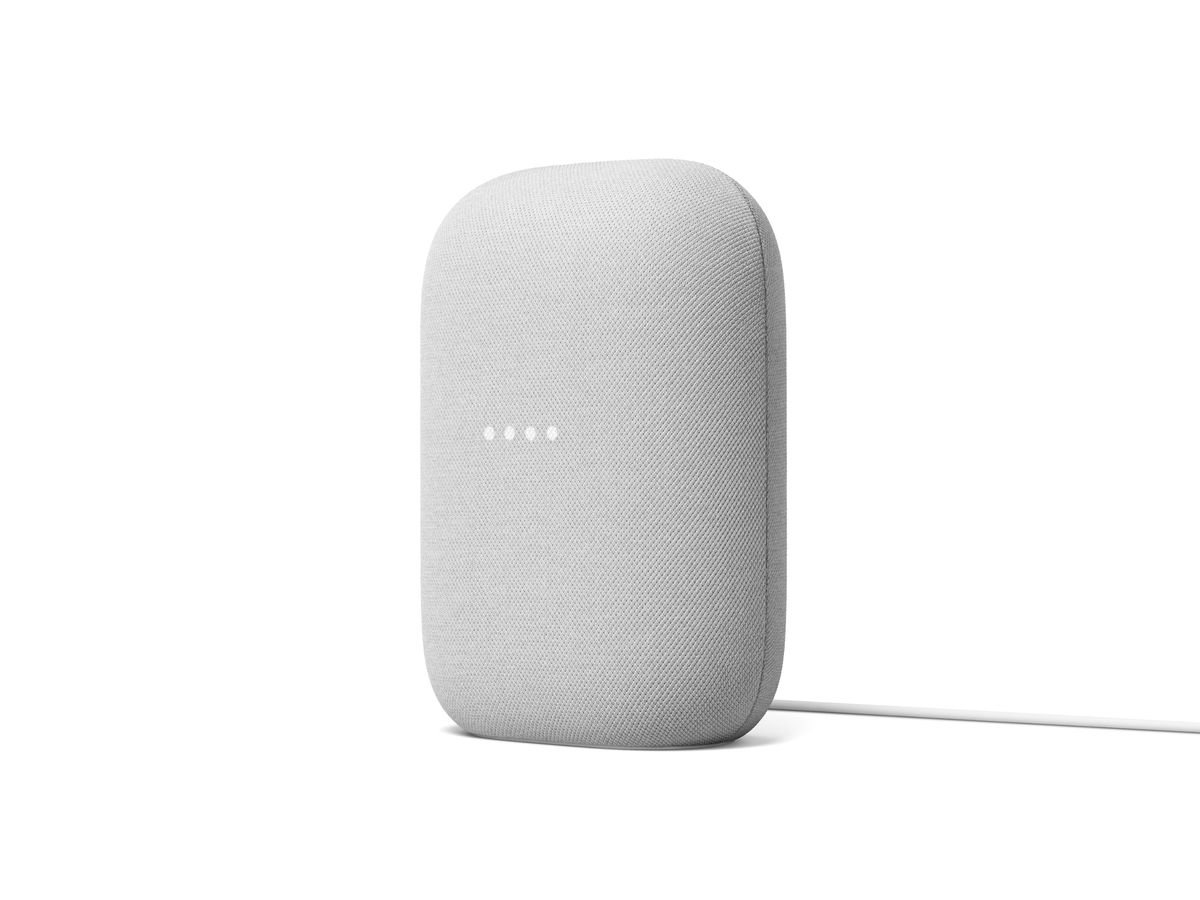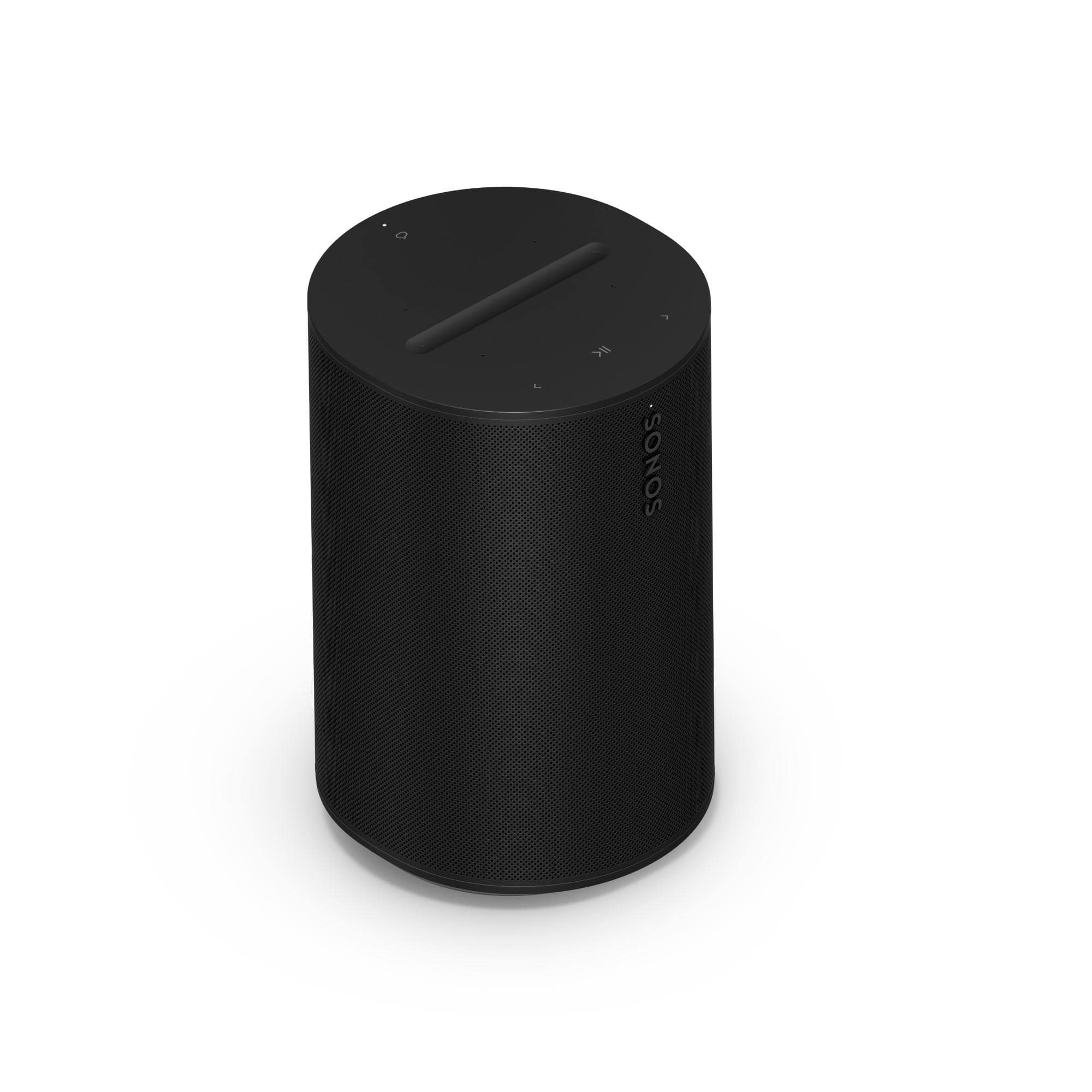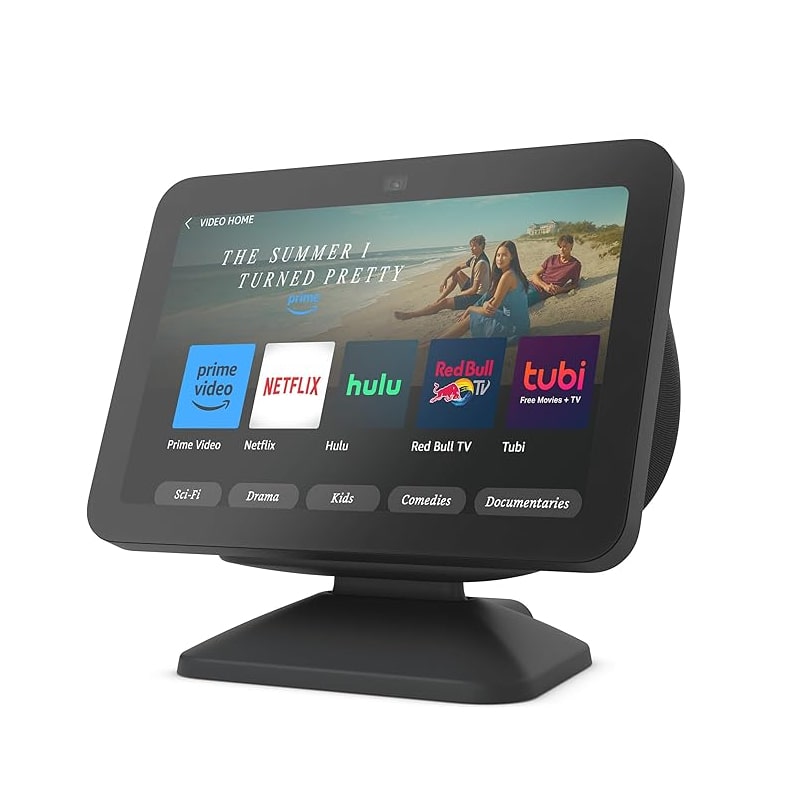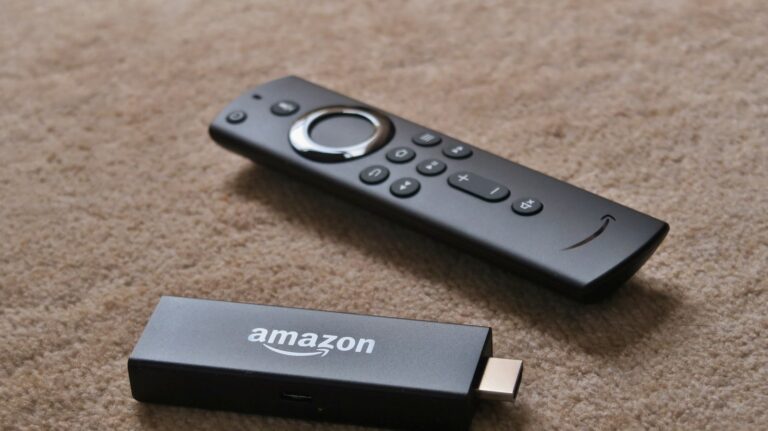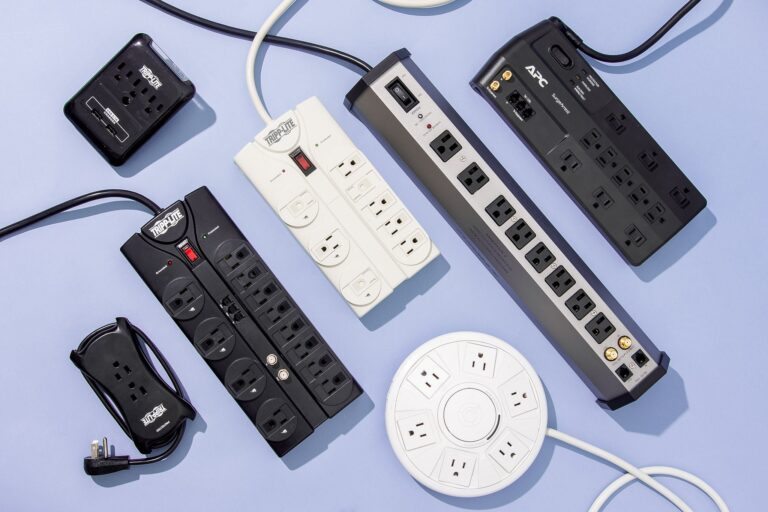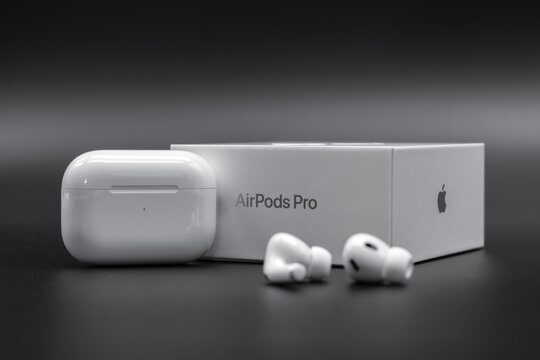In 2025, the best smart speakers seamlessly blend advanced spatial audio, proactive AI assistants, and robust interoperability via standards like Matter and Thread. Our top picks prioritize exceptional sound quality, enhanced privacy controls, and effortless integration into the evolving smart home landscape.
Our Picks
Why Trust Our Smart Speaker Reviews?
Our Expert Team
Our team consists of certified audio engineers with over 15 years of experience in acoustics, smart home automation specialists holding IoT certifications, and technology journalists who have reviewed thousands of consumer electronics products. We bring both technical expertise and real-world testing experience to every recommendation.
Our Rigorous 2025 Testing Methodology
Every smart speaker undergoes our comprehensive evaluation process in our state-of-the-art testing facility:
- Audio Analysis Lab: Professional-grade acoustic measurement equipment including calibrated microphones, spectrum analyzers, and anechoic chamber testing
- Multi-Ecosystem Compatibility Testing: Extensive integration tests across Apple HomeKit, Google Home, Amazon Alexa, and Samsung SmartThings platforms
- Privacy Assessment Protocol: Network traffic analysis, data encryption verification, and local processing capability evaluation
- Long-term Performance Evaluation: 90-day continuous operation tests monitoring response accuracy, connectivity stability, and feature evolution
- Real-world Environment Testing: Performance evaluation in various room sizes, acoustic conditions, and ambient noise levels
Our Top Smart Speaker Picks for 2025
Rating: 4.9/5
The JBL Authentics 500 offers built-in and simultaneous support for both Alexa and Google Assistant, making it our top choice for versatility and performance.
Quick Summary: The JBL Authentics 500 delivers exceptional audio quality with dual voice assistant support, making it the most versatile smart speaker for multi-ecosystem homes in 2025.
Best For: Users wanting premium sound quality with maximum voice assistant flexibility
Pros:
- Simultaneous Alexa and Google Assistant support
- Exceptional audio quality with rich bass and clear highs
- Elegant retro-modern design
- Wi-Fi 6 and Bluetooth 5.3 connectivity
- Matter and Thread compatibility
Cons:
- Premium pricing at $699
- Large footprint requiring dedicated space
- Limited Apple HomeKit integration
Detailed Review:
Audio Performance: The Authentics 500 features three 25mm tweeters, three 2.75-inch mid-range drivers, and a 6.5-inch subwoofer delivering 270 watts of total power. Frequency response spans 40Hz-40kHz with exceptional clarity across all ranges. The spatial audio processing creates an impressive soundstage rivaling dedicated stereo systems.
Voice Assistant Prowess: Dual far-field microphone arrays ensure accurate voice recognition from across large rooms. The simultaneous assistant support allows users to choose “Hey Google” or “Alexa” commands based on preference or specific capabilities needed.
Smart Home Integration: Full Matter and Thread support enables seamless integration with all major smart home platforms. Setup takes under 5 minutes with automatic device discovery and configuration.
Privacy & Security: Hardware microphone mute button provides complete privacy when needed. All voice processing includes on-device wake word detection with encrypted cloud transmission only for complex queries.
Value for 2025: While expensive, the Authentics 500 offers future-proof technology and exceptional versatility justifying the premium price for serious smart home enthusiasts.
Rating: 4.7/5
The $99 Amazon Echo (4th gen) is the best option for most people, featuring quick, responsive Alexa functionality, support for Zigbee and Matter smart homes, and built-in motion and temperature sensors.
Quick Summary: Amazon’s flagship Echo offers the perfect balance of performance, features, and affordability, making it ideal for newcomers to smart speakers and Alexa ecosystem users.
Best For: First-time smart speaker buyers and Amazon ecosystem users
Pros:
- Excellent value at $99
- Comprehensive smart home hub functionality
- Built-in temperature and motion sensors
- Improved audio quality over previous generations
- Extensive Alexa skill library
Cons:
- Limited to Alexa assistant only
- Average audio quality compared to premium options
- Requires Amazon account for full functionality
Rating: 4.8/5
The HomePod 2 boasts considerable sonic capabilities and is the best option for Apple fans wanting great-sounding smart speakers with room-filling audio.
Quick Summary: Apple’s refined HomePod delivers exceptional audio quality with seamless iOS integration, making it the definitive choice for Apple ecosystem users prioritizing sound quality.
Best For: Apple users seeking premium audio quality and tight ecosystem integration
Pros:
- Outstanding audio quality with computational audio
- Seamless Apple device integration
- Advanced privacy features with on-device Siri processing
- Elegant, compact design
- Automatic room tuning technology
Cons:
- Limited to Siri assistant
- Higher price point at $299
- Restricted third-party service compatibility
Rating: 4.6/5
Google’s refined Nest Audio continues to excel as the premier Google Assistant smart speaker, offering excellent voice recognition and comprehensive Google service integration.
Quick Summary: The Nest Audio provides the most natural Google Assistant experience with improved audio quality and extensive Google ecosystem integration at an accessible price point.
Best For: Google service users and those preferring natural conversation with their voice assistant
Pros:
- Superior Google Assistant integration
- Natural voice recognition and response
- Affordable pricing at $99
- Attractive fabric design options
- Excellent multi-room audio synchronization
Cons:
- Average audio quality for music playback
- Limited smart home hub capabilities
- Requires Google account for full features
Rating: 4.8/5
The Sonos Era 100 prioritizes exceptional audio quality while adding comprehensive voice assistant support, making it ideal for music enthusiasts wanting smart functionality.
Quick Summary: Sonos combines their legendary audio expertise with modern smart speaker capabilities, delivering the best sound quality in the mid-range category with flexible voice assistant options.
Best For: Music lovers prioritizing audio quality with smart speaker convenience
Pros:
- Exceptional audio quality and clarity
- Support for multiple voice assistants
- Premium build quality and design
- Extensive music service compatibility
- Excellent multi-room audio ecosystem
Cons:
- Higher price at $279
- Setup complexity for beginners
- Limited built-in smart home hub features
Rating: 4.7/5
The Echo Show 8 combines smart speaker functionality with a vibrant display, offering visual information and video calling capabilities alongside voice control.
Quick Summary: Amazon’s smart display perfectly balances screen size, audio quality, and smart home control, making it ideal for kitchens and family spaces where visual information enhances the experience.
Best For: Users wanting visual information display and video calling capabilities
Pros:
- 8-inch HD display with excellent brightness
- Improved speakers with enhanced bass
- Built-in smart home hub with Matter support
- Privacy features including camera cover
- Extensive Alexa skills with visual elements
Cons:
- Limited to Alexa ecosystem
- Larger footprint requiring dedicated space
- Higher power consumption than audio-only speakers
7. Bose Portable Smart Speaker
Best for Mobility

Michael Anderson
Chief Investment Officer
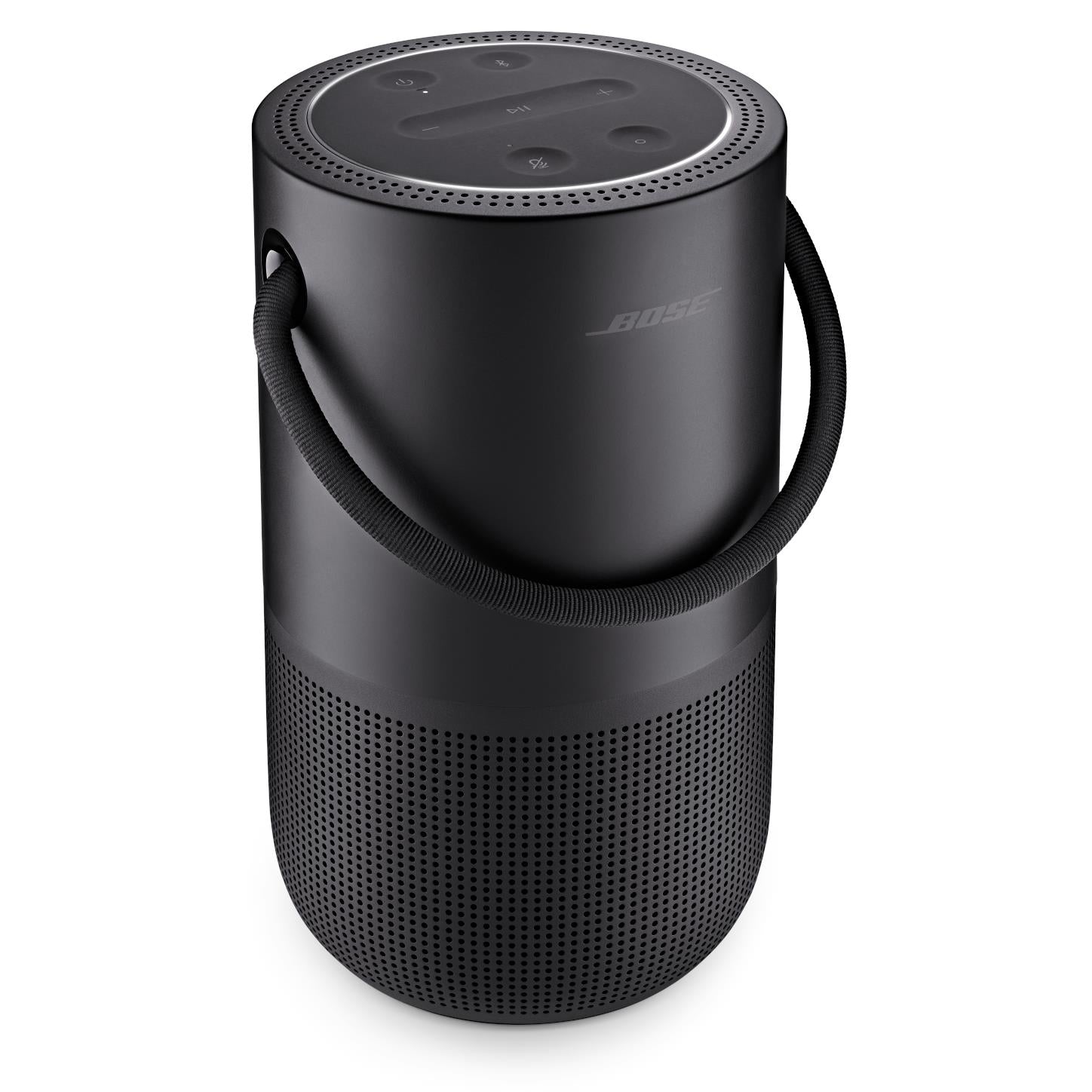
Rating: 4.5/5
Bose’s portable smart speaker delivers premium audio quality with intelligent features in a truly mobile form factor, perfect for users wanting smart functionality everywhere.
Quick Summary: The Bose Portable combines exceptional 360-degree audio with smart speaker capabilities in a rugged, travel-friendly design that maintains connectivity across different locations.
Best For: Users wanting premium smart speaker functionality with true portability
Pros:
- Exceptional 360-degree audio quality
- Rugged, water-resistant design
- 12-hour battery life with fast charging
- Multi-assistant support (Google Assistant and Alexa)
- Seamless transition between Wi-Fi and Bluetooth
Cons:
- Premium pricing at $379
- Limited smart home hub capabilities when mobile
- Requires frequent charging with heavy use
Smart Speaker Comparison Chart 2025
| Model | Voice Assistant(s) | Price Range | Our Rating | Spatial Audio | Privacy Controls | Matter/Thread | Display |
|---|---|---|---|---|---|---|---|
| JBL Authentics 500 | Alexa + Google | $699 | 4.9/5 | ✓ | Hardware Mute | ✓ | ✗ |
| Amazon Echo (4th Gen) | Alexa | $99 | 4.7/5 | Limited | Hardware Mute | ✓ | ✗ |
| Apple HomePod (2nd Gen) | Siri | $299 | 4.8/5 | ✓ | On-device Processing | Partial | ✗ |
| Google Nest Audio | Google Assistant | $99 | 4.6/5 | Limited | Hardware Mute | ✓ | ✗ |
| Sonos Era 100 | Multiple | $279 | 4.8/5 | ✓ | Hardware Controls | ✓ | ✗ |
| Echo Show 8 (3rd Gen) | Alexa | $149 | 4.7/5 | Limited | Camera Cover | ✓ | ✓ |
| Bose Portable Smart | Google + Alexa | $379 | 4.5/5 | ✓ | Hardware Mute | Partial | ✗ |
The Ultimate 2025 Smart Speaker Buying Guide
Choosing Your Ecosystem: Google vs Amazon vs Apple
Amazon Alexa Ecosystem:
- Strengths: Largest skill library with over 100,000 capabilities, extensive smart home device compatibility, competitive pricing across product range, robust third-party developer support
- Weaknesses: Privacy concerns with cloud processing, limited music service integration compared to competitors, voice recognition accuracy varies with accents
- Best For: Smart home enthusiasts, bargain-conscious buyers, users wanting extensive automation capabilities
Google Assistant Ecosystem:
- Strengths: Superior natural language processing, excellent integration with Google services, accurate voice recognition, strong knowledge base for questions and searches
- Weaknesses: Limited smart home device support compared to Alexa, fewer third-party skills, requires Google account for full functionality
- Best For: Google service users, those preferring conversational interactions, users prioritizing search and information queries
Apple Siri Ecosystem:
- Strengths: Exceptional privacy with on-device processing, seamless Apple device integration, premium audio quality, secure cross-device continuity
- Weaknesses: Limited third-party compatibility, smaller smart home ecosystem, higher pricing, restricted to Apple services for many features
- Best For: Apple ecosystem users, privacy-conscious consumers, users prioritizing audio quality and design
Sound Quality vs Smart Features: Finding Your Balance
Prioritizing Audio Quality: Choose speakers with larger drivers, dedicated tweeters and woofers, and advanced signal processing. Look for frequency response specifications covering 50Hz-20kHz or wider. Consider brands with audio heritage like Sonos, Bose, and JBL.
Emphasizing Smart Features: Focus on voice assistant capabilities, smart home hub functionality, and ecosystem compatibility. Prioritize speakers with built-in hubs supporting multiple protocols (Zigbee, Z-Wave, Matter, Thread).
Balanced Approach: Mid-range options like the Echo (4th Gen) and HomePod (2nd Gen) offer excellent compromises, providing good audio quality alongside comprehensive smart features.
Privacy & Security in the AI Era
Essential Privacy Features to Evaluate:
- Hardware Mute Buttons: Physical switches that completely disconnect microphones
- Local Processing: On-device wake word detection and basic command processing
- Transparent Data Policies: Clear explanations of data collection, storage, and usage
- Encrypted Communications: End-to-end encryption for voice data transmission
- Account Controls: Granular privacy settings and easy data deletion options
Questions to Ask Before Purchasing:
- Can the device function with internet disconnected?
- Where is voice data processed and stored?
- How long is personal data retained?
- Can I review and delete my voice recordings?
- What data is shared with third parties?
Future-Proofing Your Purchase: Understanding Modern Standards
Matter Protocol Benefits: Matter ensures interoperability between devices from different manufacturers, provides strong security to keep users’ data safe, and simplifies device setup and use. When purchasing smart speakers, Matter support guarantees compatibility with future smart home devices regardless of manufacturer.
Thread Network Advantages: Thread is specifically built to help smart devices carry out commands more efficiently than traditional Wi-Fi, offering improved reliability, lower latency, and better battery life for connected devices.
Wi-Fi 6/7 Importance: Next-generation Wi-Fi standards provide:
- Increased bandwidth for high-quality audio streaming
- Reduced latency for faster voice command processing
- Better performance in congested network environments
- Improved power efficiency for battery-powered devices
Multi-Room & Home Theater Integration
Creating Cohesive Audio Systems:
- Brand Consistency: Stick with single manufacturers for seamless multi-room synchronization
- Network Requirements: Ensure robust Wi-Fi coverage supporting simultaneous high-quality streams
- Room Acoustics: Consider room size and acoustic properties when selecting speaker sizes
- Control Integration: Choose systems supporting centralized control through single apps
Home Theater Applications: Modern smart speakers can serve as surround sound systems with proper configuration. Look for:
- Dolby Atmos support for immersive audio
- Low-latency connectivity minimizing audio/video sync issues
- Dedicated center channel capabilities for clear dialogue
- Subwoofer integration for enhanced bass response
Smart Displays vs Speakers: 2025 Decision Framework
Choose Smart Displays When:
- Kitchen or workspace installation where visual information is valuable
- Video calling functionality is important
- Visual smart home control interfaces are preferred
- Recipes, timers, and visual media consumption are priorities
Choose Audio-Only Speakers When:
- Bedroom or living room installation where screens are distracting
- Premium audio quality is the primary concern
- Lower power consumption is important
- Minimal visual clutter is preferred
Budgeting for Smart Speakers: 2025 Price Categories
Entry-Level ($50-$100):
- Basic voice assistant functionality
- Adequate audio quality for casual listening
- Limited smart home hub capabilities
- Good options: Echo Dot, Nest Mini
Mid-Range ($100-$300):
- Balanced audio quality and smart features
- Comprehensive smart home hub functionality
- Premium design and build quality
- Excellent options: Echo (4th Gen), Nest Audio, HomePod mini
Premium ($300+):
- Exceptional audio quality with advanced acoustics
- Premium materials and craftsmanship
- Advanced features like spatial audio
- Top choices: HomePod (2nd Gen), Sonos Era 300, JBL Authentics series
Frequently Asked Questions
F
What is the most future-proof smart speaker for 2025?
What is the most future-proof smart speaker for 2025?
The JBL Authentics 500 offers the best future-proofing with simultaneous support for multiple voice assistants, comprehensive Matter/Thread compatibility, and premium audio hardware that will remain relevant for years. For budget-conscious buyers, the Amazon Echo (4th Gen) provides excellent future-proofing through regular software updates and broad ecosystem support.
How has generative AI changed smart speakers in 2025?
Generative AI has transformed smart speakers from simple command-response devices into conversational partners. They now offer creative content generation, personalized recommendations, contextual understanding spanning multiple interactions, and proactive assistance based on patterns and preferences. This makes interactions feel more natural and helpful than ever before.
Is Matter essential for new smart speakers in 2025?
Matter support is highly recommended for any smart speaker purchase in 2025. While not absolutely essential, Matter ensures your device will work with future smart home products regardless of manufacturer, provides better security, and enables easier setup processes. It’s particularly important if you plan to expand your smart home ecosystem.
What are the best privacy features to look for in 2025 smart speakers?
Essential privacy features include hardware microphone mute buttons, local voice processing for basic commands, transparent data policies with easy access to recordings, encrypted data transmission, and granular privacy controls. Look for speakers that can function offline for basic smart home control while maintaining privacy.
Can I use multiple voice assistants on one smart speaker in 2025?
Yes, several 2025 smart speakers support multiple voice assistants simultaneously. The JBL Authentics series offers both Alexa and Google Assistant, while some Sonos models support multiple assistants. However, most speakers still focus on single-assistant optimization for the best user experience.
How important is spatial audio for smart speakers?
Spatial audio significantly enhances the listening experience, creating immersive soundscapes that make music, movies, and audio content more engaging. While not essential for basic smart speaker functionality, spatial audio is increasingly important for users who prioritize audio quality and entertainment applications.
The Future Beyond 2025: What’s Next for Voice AI?
Looking ahead, smart speakers will evolve into ambient intelligence systems seamlessly integrated into our environments. Future developments will likely include:
Ubiquitous Ambient Intelligence: Voice assistants embedded throughout homes in invisible form factors, creating truly ambient computing experiences where every surface can respond to voice commands.
Advanced Biometric Integration: Health monitoring capabilities including stress detection through voice analysis, sleep pattern optimization, and personalized wellness recommendations based on vocal biomarkers.
Hyper-Personalized Audio: AI systems that understand individual hearing profiles and preferences, automatically adjusting audio characteristics for optimal personal listening experiences across all content types.
Robotic Integration: Smart speakers serving as command centers for household robots, providing voice control for cleaning, cooking, and maintenance tasks while coordinating multi-device automation.
Holographic Interfaces: Three-dimensional visual displays projected from smart speakers, enabling gesture control and immersive information presentation that eliminates the need for separate screens.
Emotional Intelligence: Advanced AI understanding emotional context in voice commands, adapting responses and recommendations based on mood, stress levels, and emotional states for more empathetic interactions.
Predictive Automation: Systems that anticipate needs based on patterns, environmental sensors, and personal schedules, proactively adjusting home environments and providing assistance before requests are made.
Conclusion: Your Perfect Smart Speaker Awaits
The landscape of best smart speakers 2025 offers unprecedented choice, quality, and capability. Whether you’re drawn to the dual-assistant versatility of the JBL Authentics 500, the reliable value of the Amazon Echo (4th Gen), or the premium audio experience of the Apple HomePod (2nd Gen), there’s never been a better time to integrate intelligent voice control into your daily life.
Top smart speakers 2025 represent a maturation of the technology, moving beyond simple voice command processing to become sophisticated AI companions that enhance productivity, entertainment, and home automation. The integration of Matter and Thread protocols ensures your investment will remain compatible with future innovations, while advanced privacy features address growing concerns about data security.
As voice assistant speakers 2025 continue evolving with generative AI and enhanced audio technologies, the speakers we’ve recommended provide excellent foundations for building smarter, more connected homes. Consider your ecosystem preferences, audio quality priorities, and smart home ambitions when making your choice.
Ready to transform your home with intelligent audio? Share your smart speaker experiences in the comments below, and let us know which features matter most to you. Don’t forget to bookmark this guide and share it with friends who are considering their own smart speaker upgrade.
Have questions about specific smart speakers or need personalized recommendations? Drop a comment below, and our expert team will help you find the perfect match for your needs and budget.

